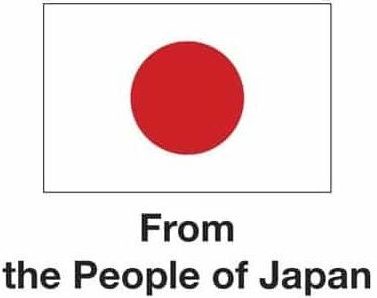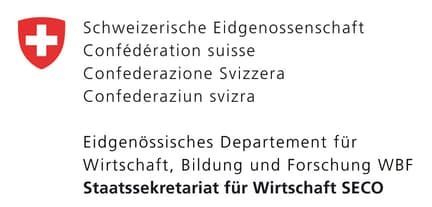Better Work Viet Nam
In operation since July 2009, Better Work Viet Nam aims to improve the working conditions and competitiveness of Viet Nam's garment and footwear industry.
In operation since July 2009, Better Work Viet Nam aims to improve the working conditions and competitiveness of Viet Nam’s garment and footwear industry. Around 400 factories across the country actively participate in the programme with nearly 700,000 employees, of whom 78 per cent are women. The programme promotes labour standards and competitiveness at the workplace through training services and seminars as well as advisory and compliance assessments.
At the national level, Better Work Viet Nam collaborates with central tripartite partners, including the Ministry of Labour, the Viet Nam Chamber of Commerce and Industry and the Viet Nam General Confederation of Labour. Together, Better Work Viet Nam and the tripartite partners work to promote labour law reforms that align Viet Nam with international labour standards and ILO Conventions. Such partnership is necessary for Viet Nam to fully participate in global supply chains in line with the terms of its existing free trade agreements. Better Work Viet Nam’s role includes connecting global brands and retailers with social partners. This integrated approach ensures continuous improvement of working conditions.
Strategic Goals
Better Work Viet Nam's 2023-2027 strategic phase will work to achieve the following outcomes:
By 2027, a joint and inclusive roadmap for a scalable approach to high and sustained compliance and social dialogue agreed to by, and jointly implemented with, programme partners.
By 2027, employers and workers and their representatives in the Better Work programme uphold and are protected by national labour laws and fundamental principles and rights at work; enterprises in the sector that have emerged from the COVID-19 crisis are more sustainable, resilient and inclusive.
By 2027, Better Work’s impact on workers, businesses and compliance is sustained by national institutions that leverage the programme’s approaches, data and evidence.
By 2027, enterprises that participate in Better Work have adopted policies and practices on responsible business conduct that support the realization of decent work.
By 2027, Better Work’s knowledge and methods have created positive social and environmental impacts beyond the programme as they are adopted in other countries and sectors.
Latest news
Better Work Celebrates 15 Years in Viet Nam
Better Work marked 15 years of operations and impact in Viet Nam with a ceremony held in Hanoi on 4 December 2024. The event was attended by nearly 60 delegates, including senior leaders from the programme’s tripartite partner organizations – the Ministry of Labour, Invalids, and Social Affairs (MoLISA), the Vietnam Chamber of Commerce and …
Lessons from a high-performance factory in Viet Nam
Better Work Viet Nam marks 15 years of innovation and progress
The Factory Ambassador programme: Empowering workers in Viet Nam’s garment industry
Priority themes in Viet Nam
Better Work Viet Nam's work focuses on six of these cross-cutting themes, which are essential to achieving our strategic outcomes and will be present in our factory engagement, research, policy influencing and content produced as well as affect how we allocate our human and financial resources:
Productivity and Business Performance
Better Work Viet Nam will collaborate with MoIT and other institutes to design and scale interventions that advance productivity for enterprises. The programme will explore partnerships with Technical Vocational Education and Training (TVET) colleges to provide Training for Trainers (ToT) so that trainers and teachers can provide technical and soft skills training to workers and factories in the future.
Data and Evidence
In the context of the government’s priority on the Industrial Revolution 4.0 and the application of digital platforms by the national constituents and industry partners, the programme will optimise the use of digital technologies in communications and the delivery of services.
Environmental Sustainability
Building on the success of the environmental pilot conducted by the IFC, Better Work Viet Nam will provide training on environmental law requirements for participating factories. The programme will work closely with specialized ILO departments, the ILO Regional Office for Asia and the Pacific and other climate change related ILO projects to promote a just transition agenda in the garment sector.
Gender Equality and Inclusion
The programme will focus on issues of inclusion, women’s empowerment and sexual harassment prevention. The programme will also join forces with other women organizations to address the gender pay gap. The correlation between productivity and gender equality will be explored and promoted further.
Occupational Safety and Health
In collaboration with ILO technical departments, Better Work Viet Nam will increasingly engage tripartite partners in the OSH initiatives/interventions so that they can assume responsibility for promoting and monitoring OSH compliance and improvements. The programme will work with national constituents, including the MoH, to boost industrial and factory capacity using risk-based assessments and preventive methods.
Social Dialogue
Social dialogue will continue to be at the center of the industrial relations process, ensuring democratic and robust labour management relations at the workplace. The programme will work closely with the Country Office and various ILO technical departments and projects to advocate and support proactive use of the new industrial relations process created by the 2019 Labour Code.



